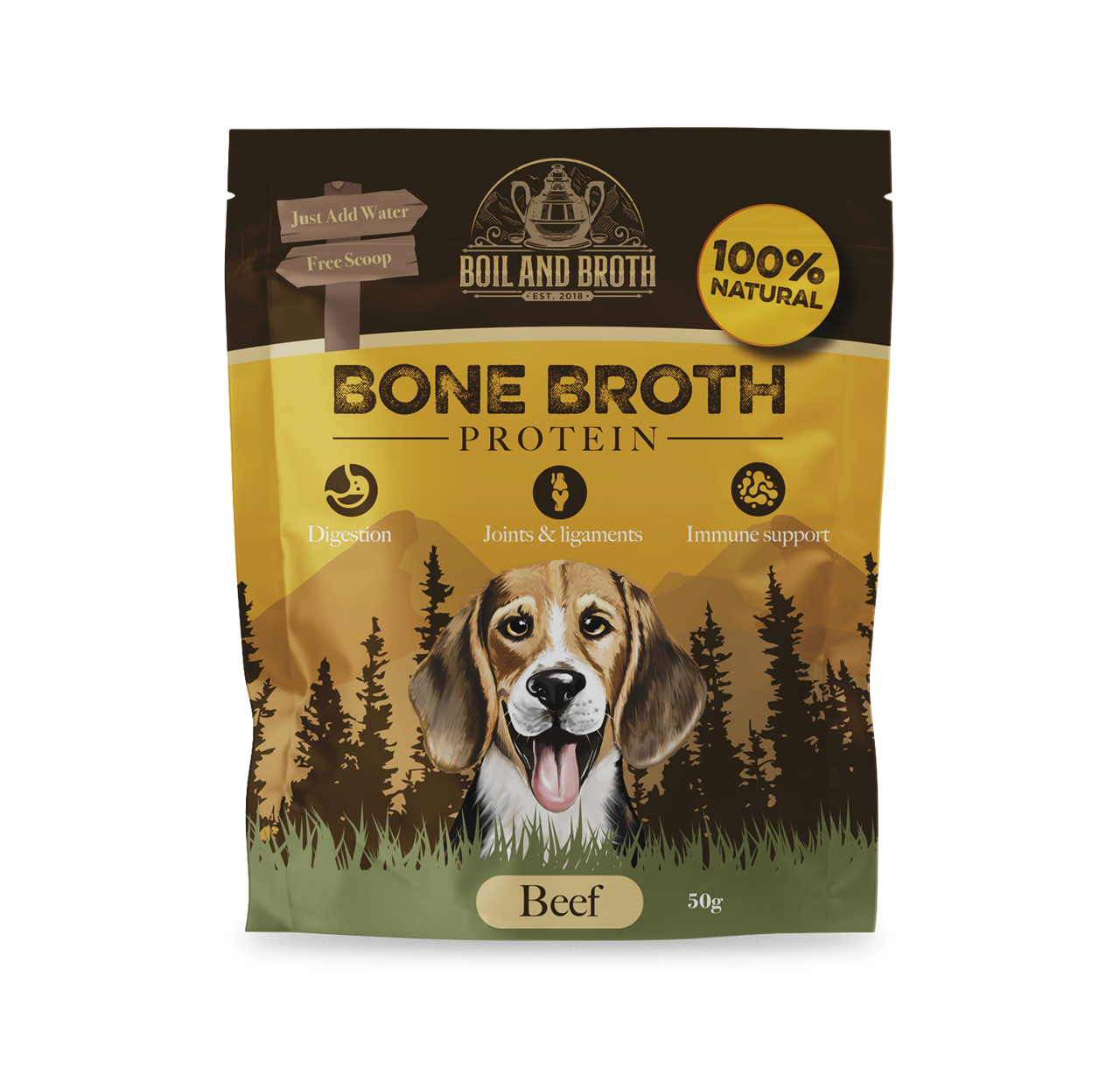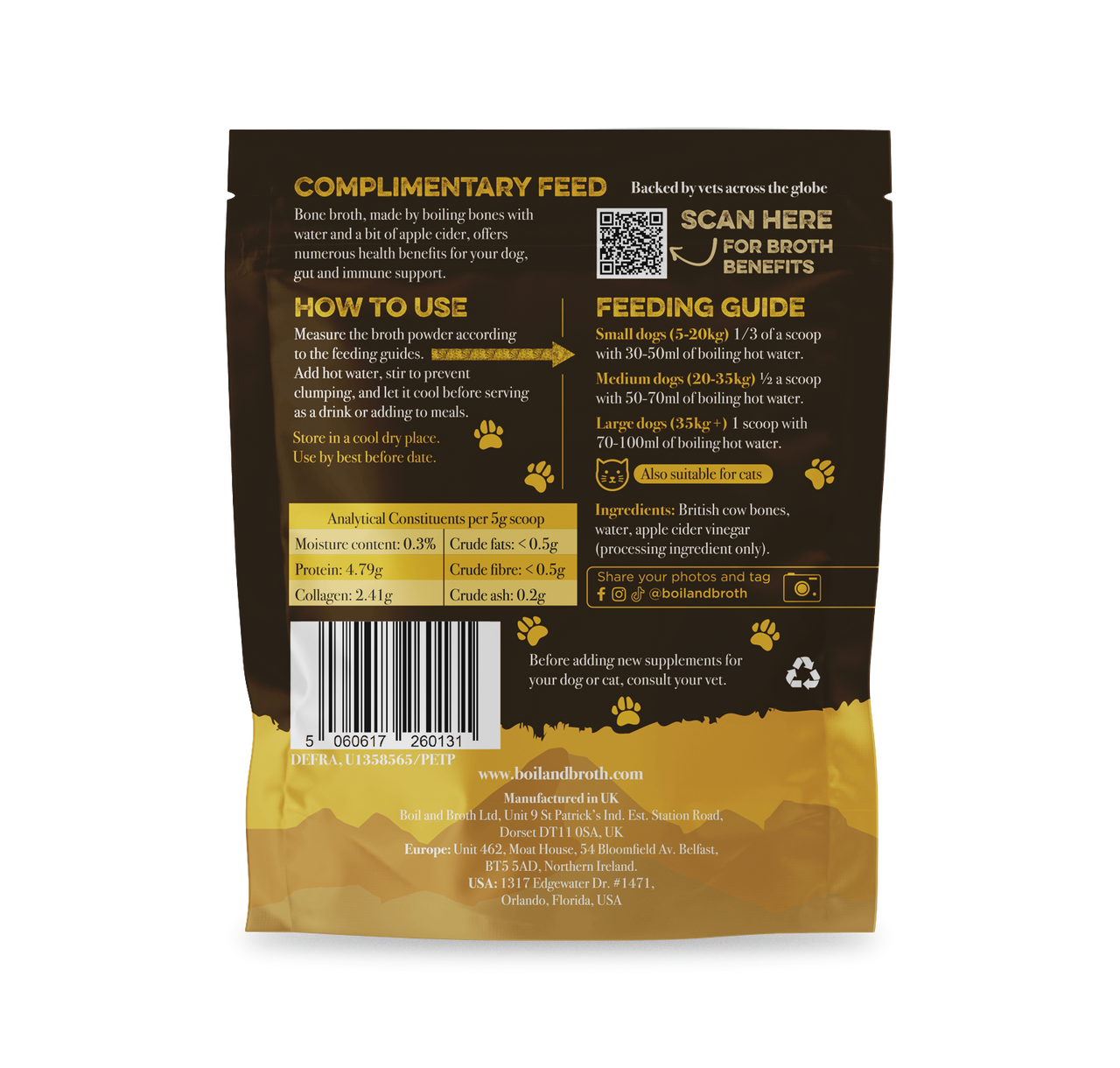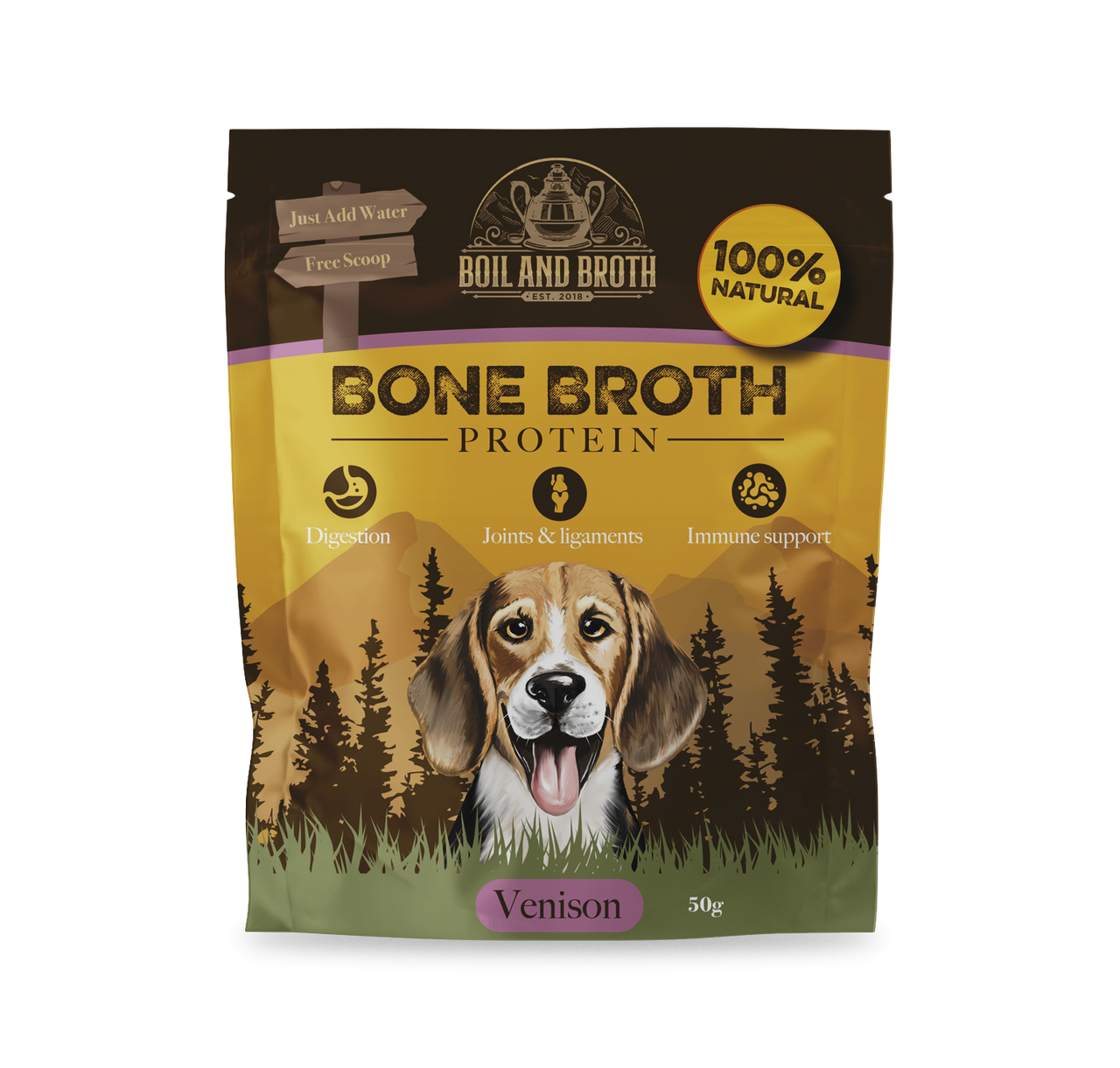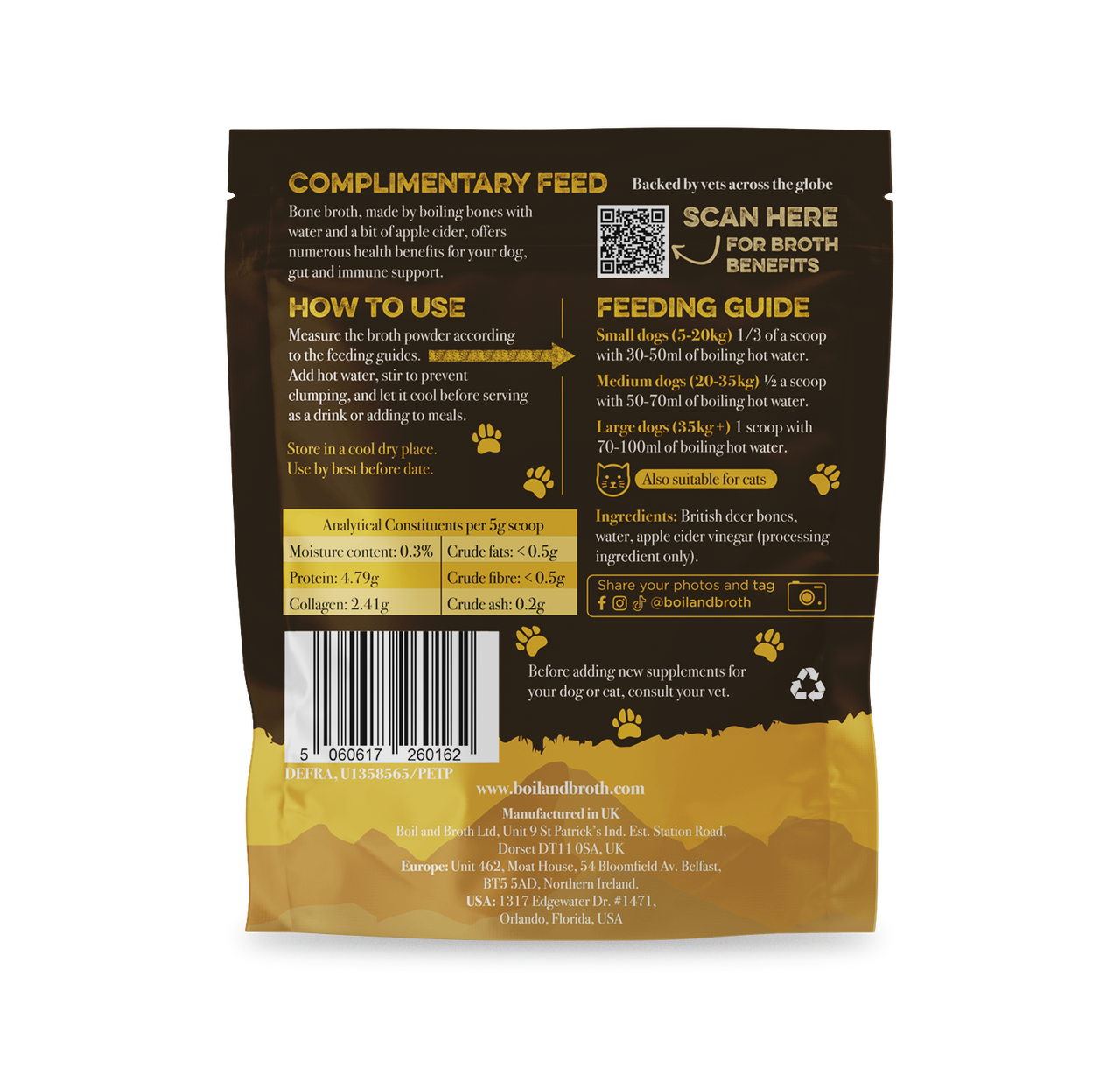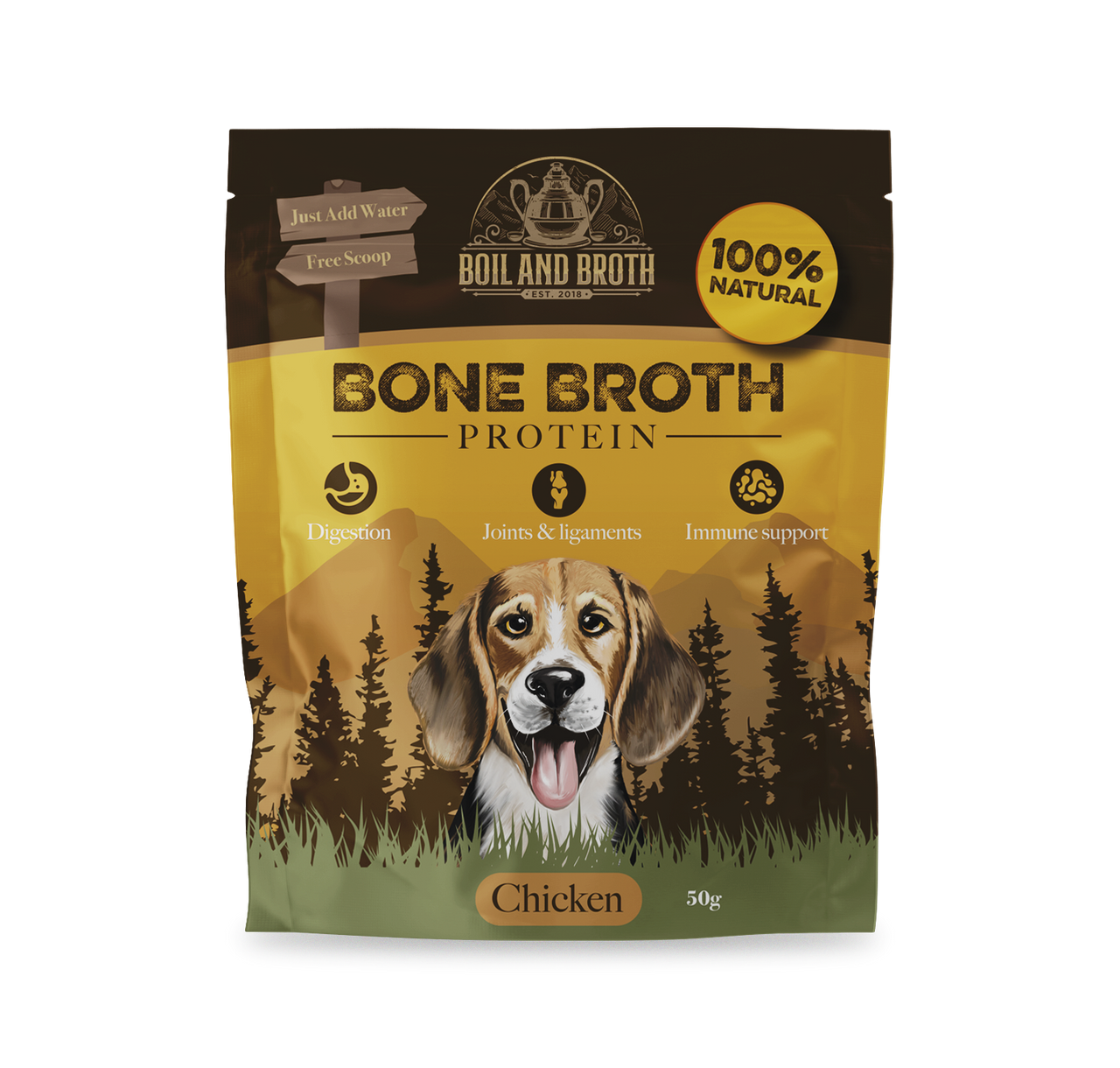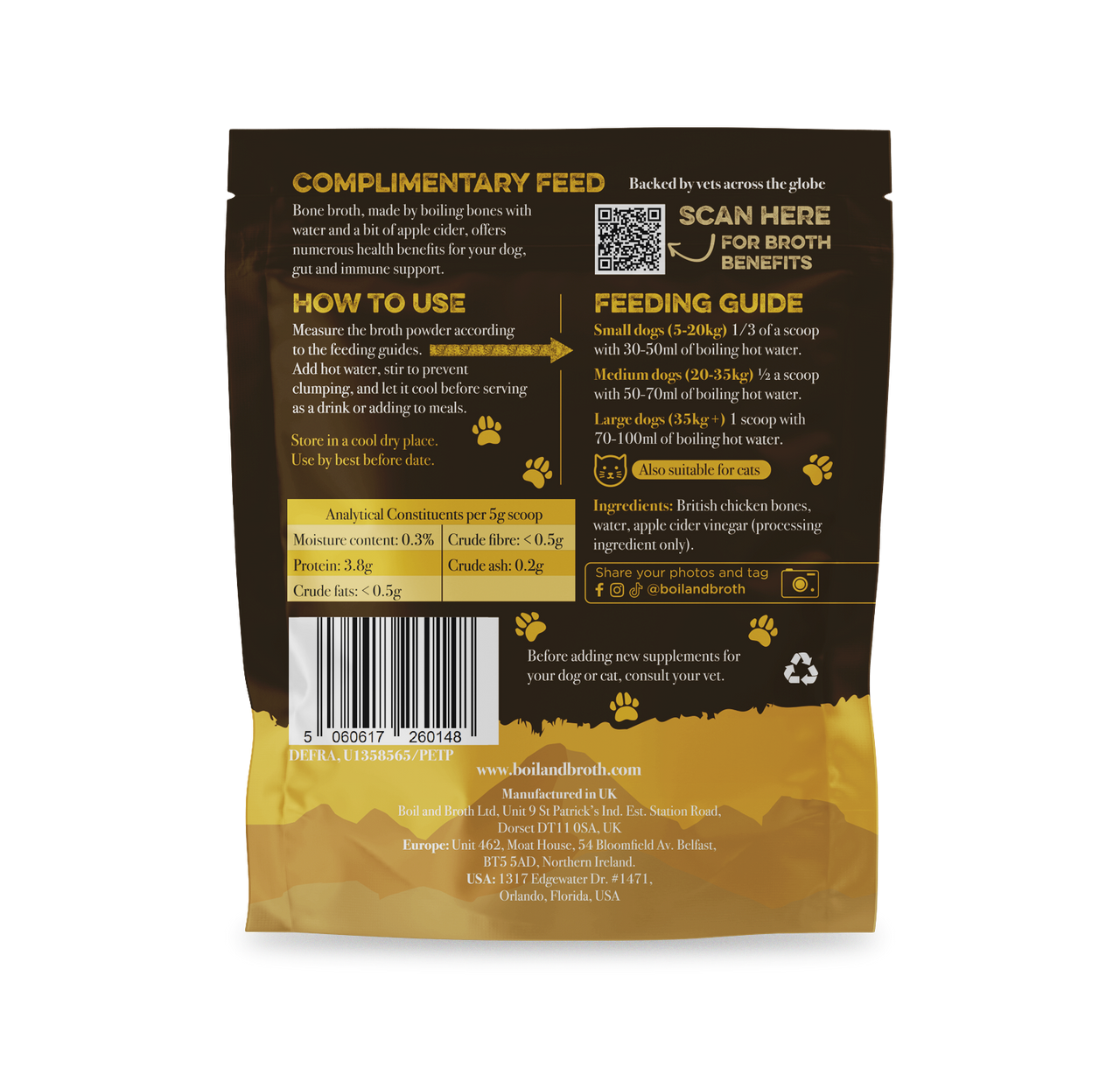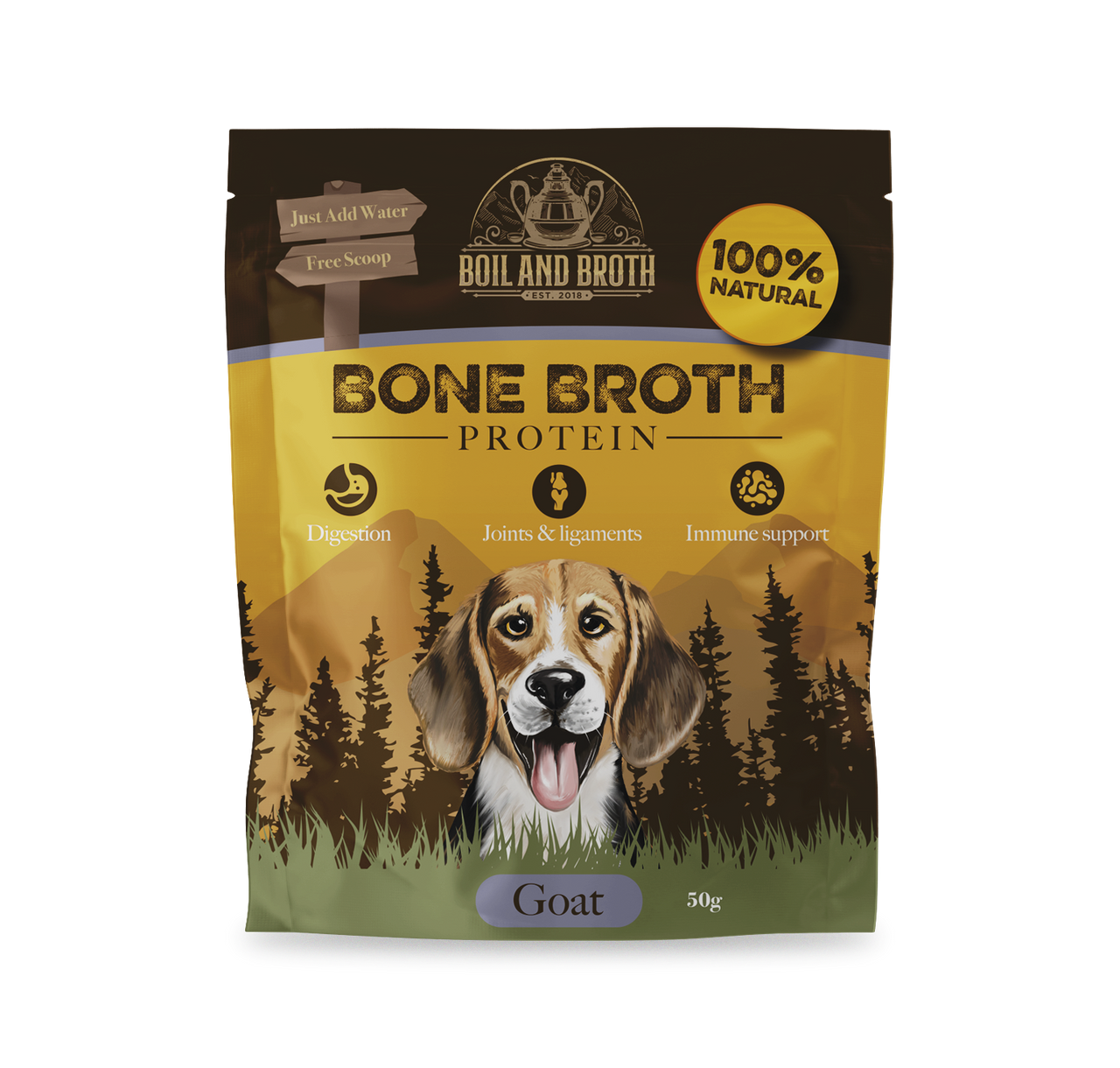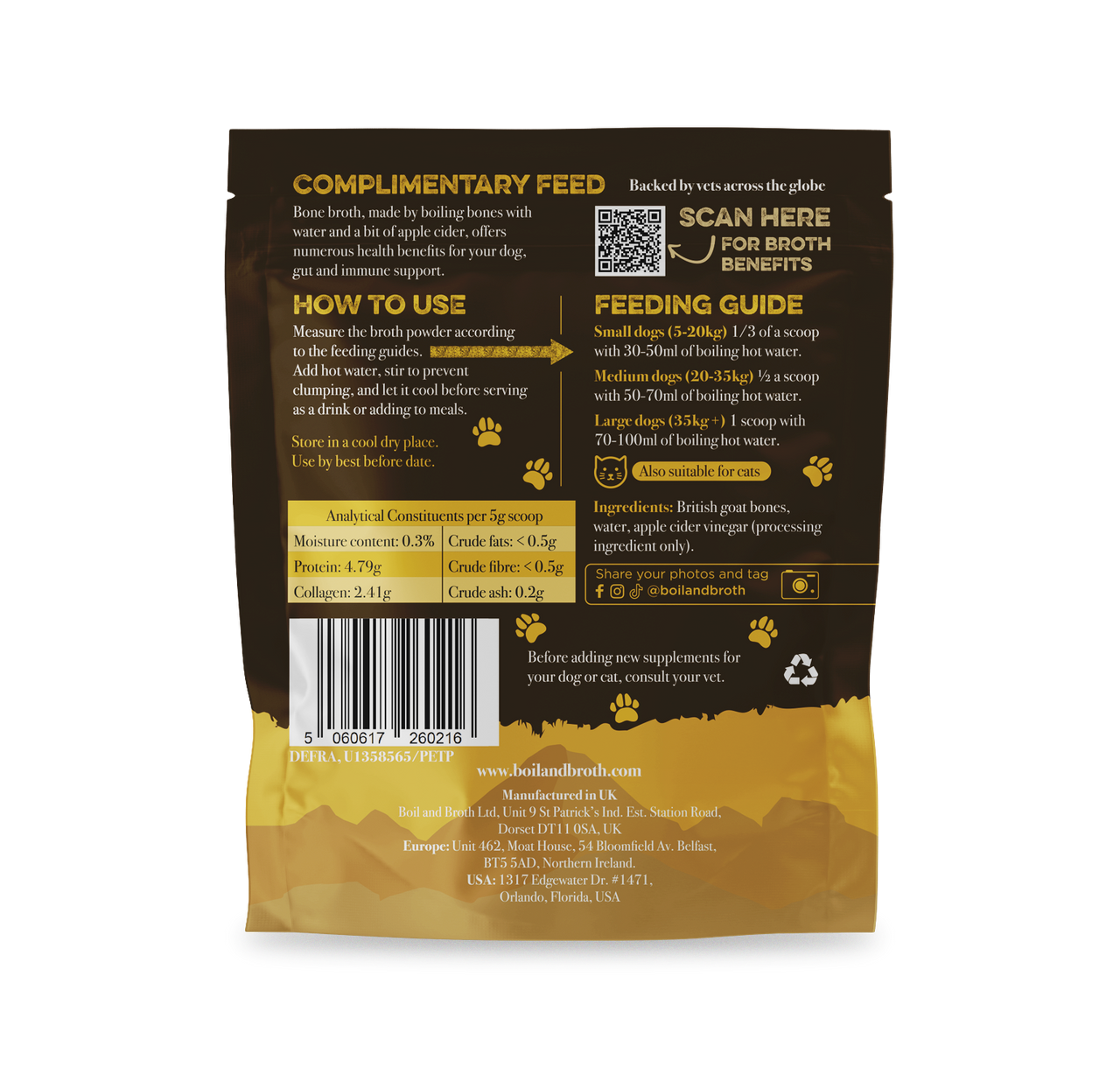Seasonal affective disorder (SAD)
Are you suffering from SAD syndrome?
November 2024 By Rachel Down
Note: At the time of writing this report, results for one more dog is still pending. This additional result may provide further insights into the effects of bone broth supplementation on the canine gut microbiome and will be incorporated into the study’s final analysis.
Disclosure:
This research was conducted by Boil and Broth, in collaboration with Biome4Pets and Aberystwyth University, to evaluate and demonstrate the potential benefits of bone broth for canine gut health. This study was not an approved scientific study and therefore has not undergone peer review. It was conducted as an internal research project by the product’s manufacturers to test their product’s impact on canine gut microbiome diversity and specific bacterial genera levels.
For this study, Boil and Broth also chose to work with Anna Webb, a nationally recognised expert in canine nutrition, to provide additional expertise in evaluating and interpreting results.
Comments from all three parties are written at the end of the study.
Summary of Highlights
Introduction
- Study Objective: To evaluate the impact of a 4-week bone broth supplementation on gut microbiome diversity in 33 dogs, focusing on Helicobacter, Clostridium, and Bifidobacterium.
- Importance of Gut Health: A balanced gut microbiome supports digestion, immune function, and skin condition, making it critical for canine wellness.
Diversity of Gut Bacteria
- Increase in Gut Diversity: 96.88% of the dogs experienced an increase in bacterial diversity after bone broth supplementation, promoting gut ecosystem stability.
- Enhanced Impact on Balanced Diets: The most significant diversity increases were observed in dogs with balanced or varied diets, suggesting bone broth works synergistically with nutrient-rich diets.
Helicobacter
- Significant Reduction: Helicobacter levels decreased by 96.97% across participants, indicating bone broth’s effectiveness in regulating this potentially harmful bacteria.
- Influential Factors:
- Diet: High-fibre and raw diets paired with bone broth led to greater reductions.
- Age: Older dogs experienced slightly greater reductions in Helicobacter levels.
3. Inflammation Reduction: Lower Helicobacter levels correlated with reduced gut inflammation, supporting overall gut integrity.
Clostridium sensu stricto
- Marked Decrease: 87.1% of dogs showed reductions in Clostridium levels, bringing most closer to the ideal threshold (<0.5%).
- Gut Health Benefits: Lower Clostridium levels reduced risks of leaky gut syndrome and systemic inflammation, indicating improved gut barrier function.
Bifidobacterium
- Dramatic Increase: Bifidobacterium levels rose by an average of 1562.86%, with every participant showing growth in this beneficial bacteria.
- Dietary Impact: Dogs on high-fibre and raw diets experienced the most significant increases, highlighting the prebiotic effect of bone broth when paired with fibre-rich foods.
When discussing high fibre diets this refers to diets inclusive of a range of vegetables, and some fruits.
1. Introduction
Objective:
This study aimed to evaluate the impact of a 4-week bone broth supplementation on the gut microbiome diversity of 33 canine participants, none of whom had been given bone broth prior to the study. The analysis focused on three primary bacterial genera—helicobacter, clostridium sensu stricto, and bifidobacterium—alongside overall bacterial diversity.
Background:
The canine subjects in this study represented a diverse range of breeds, sizes, and ages. This diversity allowed for an analysis of how bone broth supplementation might affect dogs with varying physiological and environmental backgrounds, providing insights into how factors like age, diet, household environment, and reproductive status may influence outcomes. A balanced gut microbiome is critical for canine health, impacting digestion, immune function, and skin condition. This study investigated the effects of adding bone broth to each dog’s regular diet, assessing changes in beneficial and potentially harmful bacterial populations.
2. Diversity of Gut Bacteria
What is Gut Bacterial Diversity?
Definition and Importance:
Gut bacterial diversity refers to the variety of bacterial species present within the gastrointestinal tract. A diverse gut microbiome is considered beneficial because it offers resilience against pathogens, supports efficient digestion, and promotes a balanced immune response. A wide range of bacterial species provides functional redundancy, meaning that even if some bacterial groups are suppressed, others can fulfill similar roles, maintaining gut stability.
Expected Species Variety in Canine Gut Microbiomes:
A healthy canine gut typically hosts dozens of bacterial species across different genera, although the exact composition can vary based on diet, age, breed, and environmental factors. Ideally, a dog’s gut microbiome includes a balance of beneficial bacteria like bifidobacterium and lactobacillus, as well as a moderate presence of other commensal bacteria that support gut health. The more diverse a dog's gut microbiome is, then the better health they will have. Normal range for the number of species in the gut is 300-500 different bacteria. Anything lower and a dog's health is compromised, anything higher and a dog has a better chance of longterm wellness.
Common Bacterial Groups in the Canine Gut
Dominant Genera:
Firmicutes and Bacteroidetes: These two phyla make up the majority of bacteria in the canine gut. Firmicutes, which includes genera like Lactobacillus and Clostridium, are involved in nutrient absorption and energy regulation. Bacteroidetes, on the other hand, aid in the breakdown of complex carbohydrates, contributing to efficient digestion and nutrient availability.
Bifidobacterium:
Part of the Actinobacteria phylum, bifidobacterium is known for its beneficial roles in digestion and immune modulation. It is often found in high numbers in dogs with balanced diets and is commonly associated with gut health and resilience.
Lactobacillus:
Another beneficial genus within Firmicutes, lactobacillus supports gut integrity and aids in maintaining an acidic environment that inhibits pathogenic bacterial growth.
Less Influential Bacteria:
Proteobacteria:
While small amounts of Proteobacteria (e.g., Escherichia and Helicobacter) are typically present in healthy dogs, an overabundance can signal gut dysbiosis or imbalance. These bacteria are less influential in a healthy gut due to their limited beneficial functions, with high levels often linked to gastrointestinal disturbances.
Fusobacterium:
Though sometimes present in low numbers, Fusobacterium generally has a minor functional role in the canine gut compared to more dominant genera like Firmicutes and Bacteroidetes.
Diversity Change Overview in This Study:
Increase in Bacterial Diversity:
Following the bone broth supplementation, approximately 96.88% of the dogs in the study exhibited an increase in bacterial diversity. This enhancement in diversity suggests that bone broth, as a supplementary addition to the regular diet, may positively influence microbial variety and gut ecosystem stability.
Correlation with Diet:
Diet Type with Bone Broth Supplementation:
Dogs consuming bone broth as a dietary supplement to their normal diet showed marked increases in bacterial diversity, with the most notable effects observed in dogs already on balanced or varied diets. These findings suggest that bone broth may support microbial diversity, particularly when paired with a diet that provides a range of nutrients.
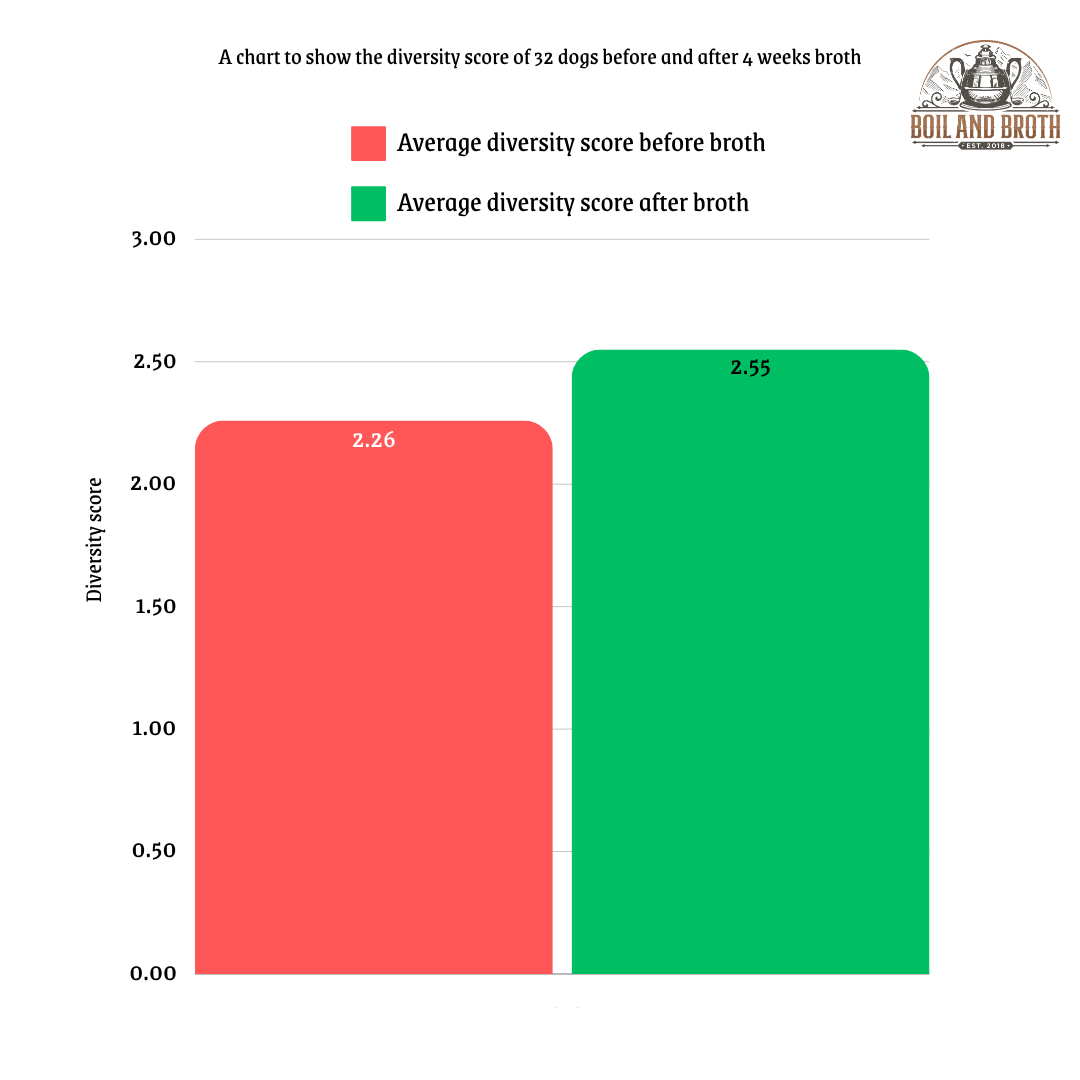
The chart opposite shows an average diversity score before and after bone broth. As you can see there was an overall average increase before and after bone broth for 4 weeks.
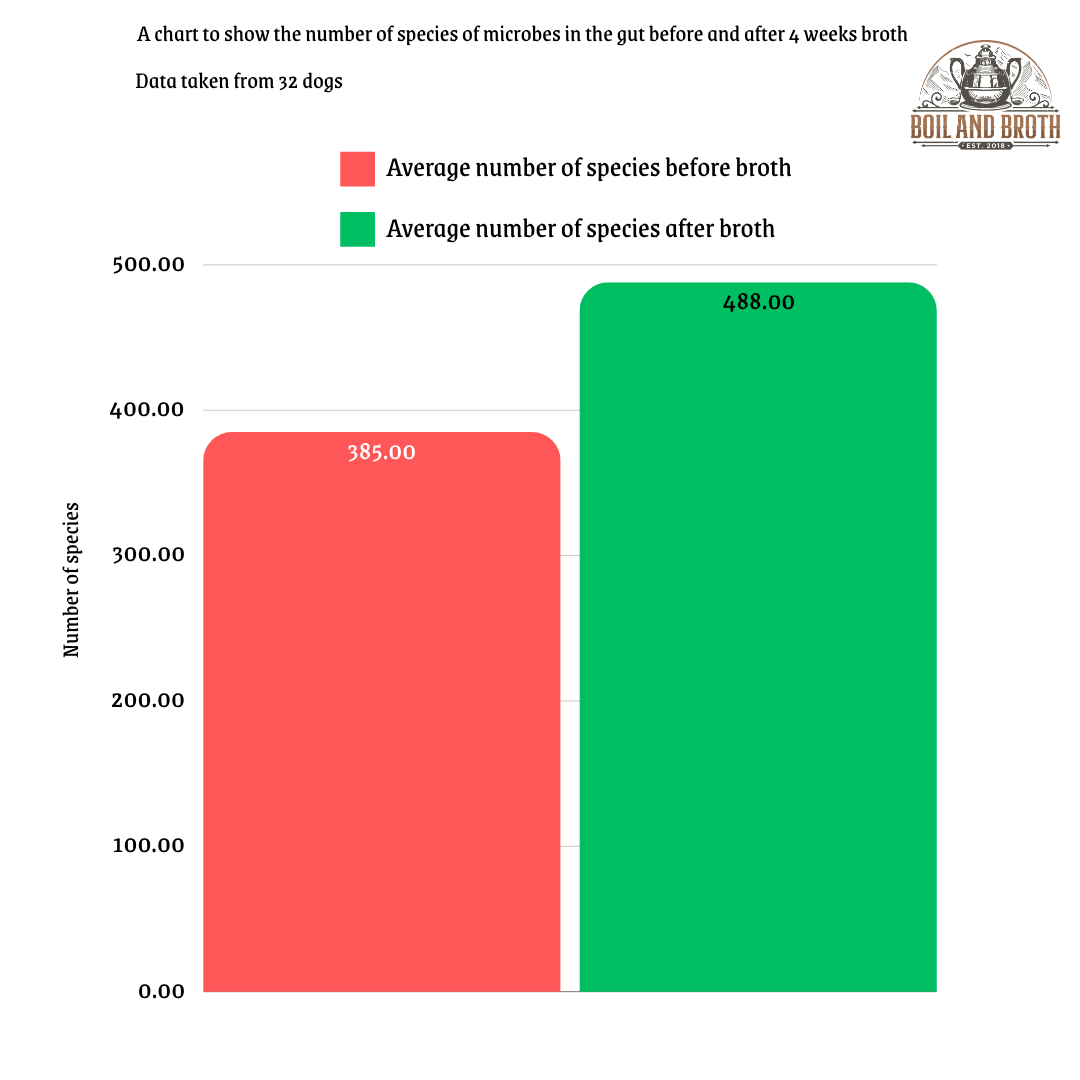
This chart shows us the average number of species in 32 dogs before and after 4 weeks of bone broth. Again you can see there was an increase taking the average number of species to nearly 500 which is considered better for dogs. Lower than 400 species can show as digestive problems in your dog.
3. Helicobacter Analysis
Background on Helicobacter:
Description and Role:
Helicobacter species are naturally present in the gastrointestinal tracts of mammals, including dogs. While certain helicobacter species, such as Helicobacter pylori, can exist harmlessly at low levels, an overgrowth is associated with adverse health effects. Helicobacter species thrive in the stomach's acidic environment, where they can contribute to gut discomfort if left unchecked.
Ideal Levels for a Healthy Gut:
In a balanced canine gut, helicobacter levels are typically less than 1% of the total microbiome. Levels above this threshold can indicate an imbalance, as an overgrowth of helicobacter is associated with inflammation and digestive discomfort. In this study, all dogs began with helicobacter levels of 1% or more, highlighting a common prevalence of elevated helicobacter in the sample group before bone broth supplementation.
Link to Gut Inflammation:
An overgrowth of helicobacter has been increasingly associated with gut inflammation. This inflammation occurs as the immune system responds to excess helicobacter, leading to disruptions in the gut lining and increased permeability. Chronic inflammation from high helicobacter levels can compromise gut integrity, potentially allowing pathogens to enter the bloodstream and causing systemic health issues.
Percentage of Decrease:
The study observed a 96.97% reduction in helicobacter levels across the canine participants after bone broth supplementation. This significant decrease suggests that bone broth, when added to a dog’s regular diet, may play an effective role in regulating helicobacter levels and supporting a balanced gut environment.
Correlation with Other Factors:
Diet Type:
Dogs supplemented with bone broth as part of their regular diet saw a significant reduction in helicobacter levels, with slightly more pronounced reductions in dogs consuming high-fibre and raw food diets. This trend may indicate that bone broth, in conjunction with specific diet types, can contribute to moderating helicobacter populations and reducing inflammation risks.
Age:
There was a weak negative correlation with age, indicating that older dogs may experience slightly greater helicobacter reductions compared to younger dogs.
Household Composition:
Dogs from multi-pet households exhibited more notable reductions in helicobacter, possibly due to increased environmental microbial exposures that interact with the microbiome and enhance the broth’s impact.
Feeding Frequency:
Feeding frequency did not show a notable effect on helicobacter levels, suggesting that the reduction was primarily related to diet and other factors.
Spayed/Neutered Status:
Neutered dogs experienced slightly higher reductions in helicobacter compared to intact dogs, although the difference was minimal.
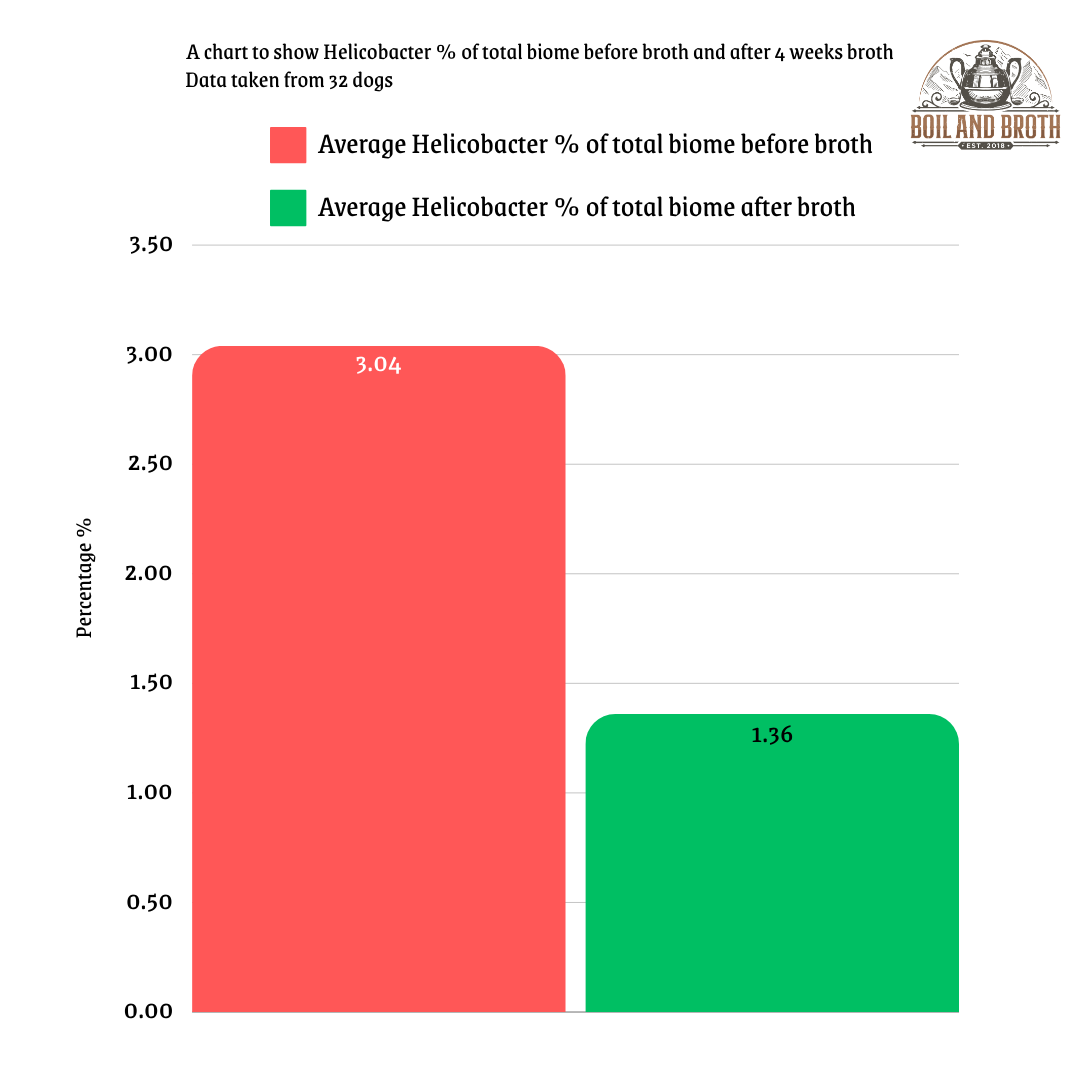
The chart on the right shows the average helicobacter making up the total % of the canine gut microbiome. Anything above 1% can show as digestive discomfort and inflammation.
As you can see that after 4 weeks of bone broth, the average total % of the canines on the study fell to 1.36%
4. Clostridium Sensu Stricto Analysis
Background on Clostridium sensu stricto:
Description and Role: Clostridium is a genus that includes both benign and pathogenic species. In healthy canines, clostridium typically comprises less than 0.5% of the total gut microbiome. Higher levels may indicate an imbalance, as some species within this genus, such as Clostridium perfringens, are associated with gastrointestinal disorders.
Association with Inflammation and Leaky Gut:
An overgrowth of clostridium has been linked to gut wall inflammation, a response that occurs as the immune system attempts to control pathogenic bacterial populations. This inflammatory response can lead to increased gut permeability, often referred to as "leaky gut syndrome," where the gut barrier becomes compromised. This allows pathogens and toxins to pass into the bloodstream, potentially triggering systemic inflammation and other health issues.
Initial Levels in This Study:
In this study, 96.77% of the canine participants had clostridium levels above the normal threshold of 0.5% before bone broth supplementation. This high prevalence of elevated clostridium suggests that most dogs started with an imbalance, potentially impacting gut health and indicating room for improvement through dietary adjustments.
Percentage of Decrease:
Following bone broth supplementation, an impressive 87.1% of the dogs demonstrated a reduction in clostridium levels. This substantial decrease suggests that bone broth, when added to the dogs’ regular diets, may play a significant role in helping to bring clostridium levels closer to the ideal range for a balanced gut microbiome.
Correlation with Other Factors:
Diet Type:
All dogs maintained their regular diet with bone broth as an addition. Dogs on balanced or high-protein diets in combination with bone broth experienced notable reductions in clostridium, suggesting that bone broth’s effects may interact positively with other dietary components to support gut health.
Age:
No significant correlation was observed between age and clostridium reduction, suggesting a consistent response across age groups.
Household Composition:
No substantial impact was noted from household size or composition on clostridium changes.
Feeding Frequency:
Dogs fed more frequently showed slightly higher clostridium reductions, although the trend was not strong enough to be conclusive.
Spayed/Neutered Status:
Dogs that were spayed or neutered experienced marginally higher reductions in clostridium compared to unaltered dogs, though the difference was minor.
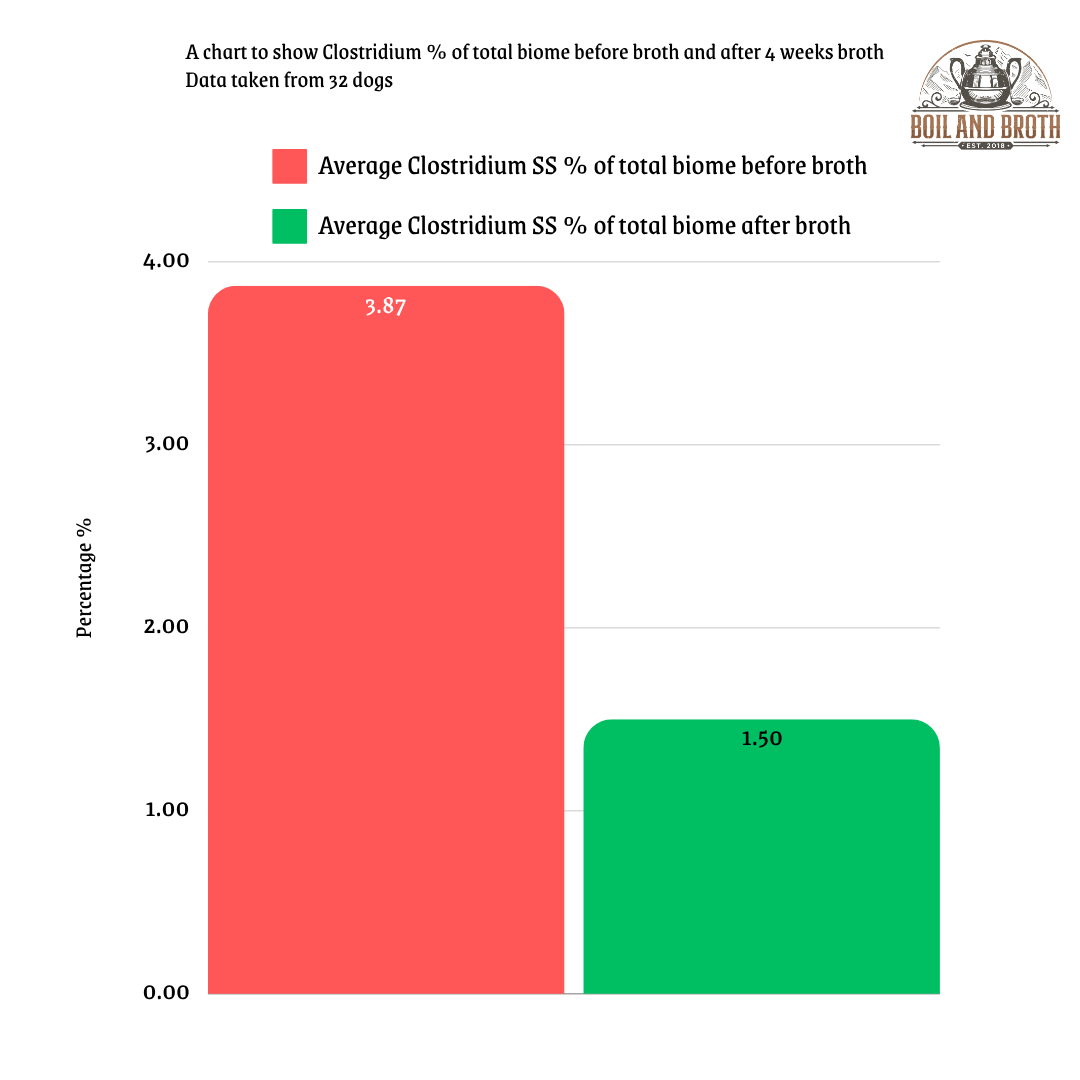
The chart on the left shows the average Clostridium making up the total % of the canine gut microbiome. Anything above 0.5% can show as gastrointestinal disorders.
After only 4 weeks of bone broth, the average total % of Clostridium in canines on the study fell to 1.50%
This % is still above normal levels, but the question must be would broth for a longer time reduce this further?
5. Bifidobacterium Analysis
Background on Bifidobacterium:
Description and Role:
Bifidobacterium is a beneficial bacterial genus crucial for gut health. Known for its anti-inflammatory properties, bifidobacterium helps prevent infections by inhibiting pathogenic bacteria and is essential for producing certain B vitamins and secondary metabolites that support overall health. These secondary metabolites include short-chain fatty acids that promote gut barrier integrity and aid in immune regulation.
Optimal Levels for a Healthy Gut:
In a healthy canine gut, bifidobacterium typically comprises 1-2% of the total microbiome. This presence supports gut resilience, nutrient absorption, and immune defence.
Initial Levels in This Study:
In this study, 74.19% of dogs had bifidobacterium levels below the 1% threshold before the intervention, indicating that the majority of participants began with suboptimal bifidobacterium populations, which could impact gut function and overall health.
Percentage of Increase After Bone Broth Supplementation:
Following the 4-week bone broth supplementation, 100% of the dogs experienced an increase in bifidobacterium levels. The average increase reached 1562.86%, suggesting that bone broth may act as a prebiotic, fostering significant growth of beneficial bacteria.
Correlation with Other Factors:
Diet Type with Bone Broth Supplementation: Dogs consuming diets high in fibre and raw food alongside bone broth experienced the most significant increases in bifidobacterium levels, suggesting that the prebiotic effects of bone broth are enhanced when combined with diets that support microbial diversity.
Age:
A slight positive correlation with age was observed, indicating that older dogs may experience greater bifidobacterium proliferation when bone broth is included in their diet.
Household Composition:
Dogs from multi-pet households had slightly higher bifidobacterium increases, potentially due to broader microbial exposure.
Feeding Frequency:
Feeding frequency appeared to have minimal influence on bifidobacterium levels, indicating that the beneficial effects were primarily diet-driven.
Spayed/Neutered Status:
Spaying or neutering had no significant impact on bifidobacterium changes, suggesting that bone broth broadly supports bifidobacterium growth across different reproductive statuses.
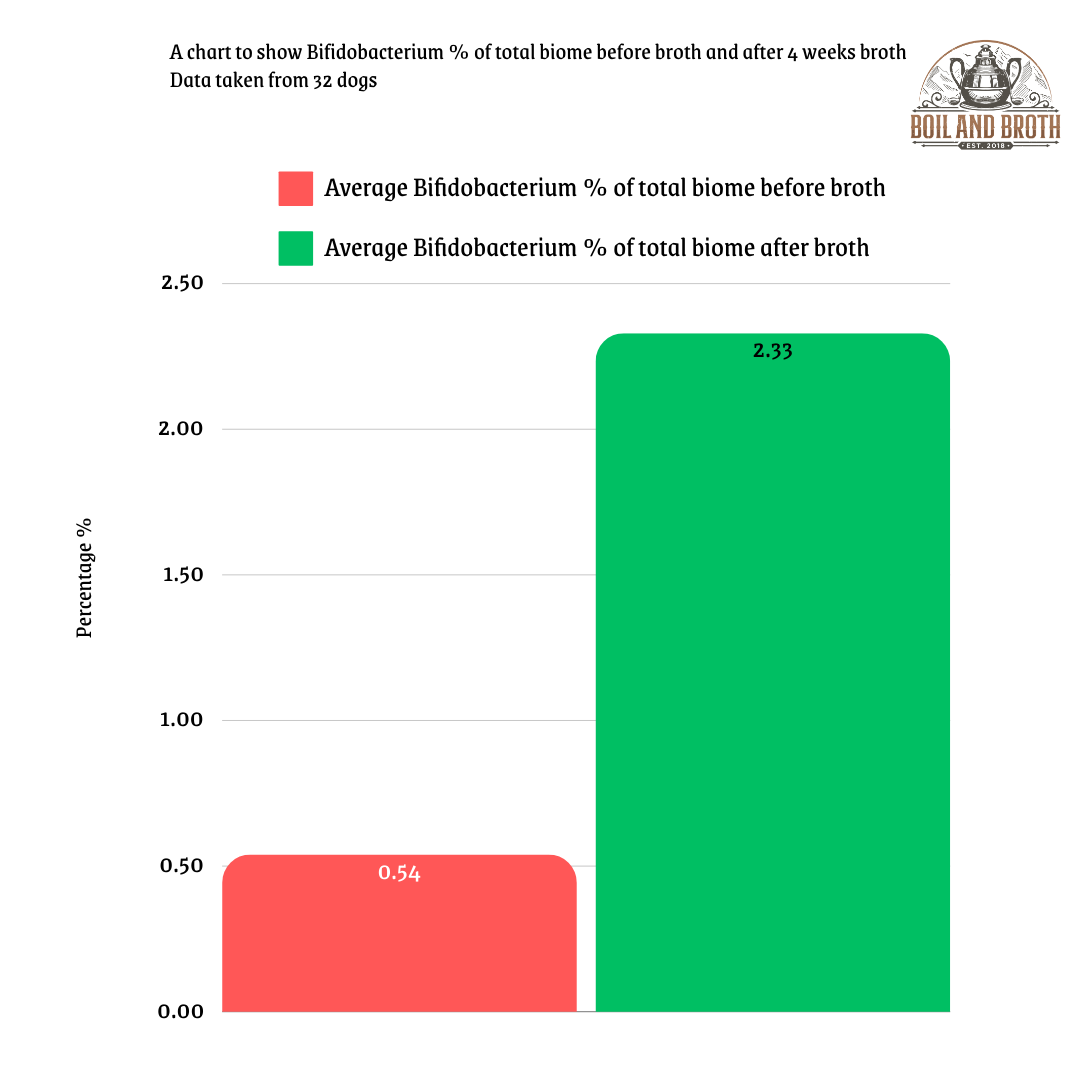
The chart on the right shows the average Bifidobacterium making up the total % of the canine gut microbiome. Anything below 1-2% can lower the immune system, disrupt nutrient absorption, and cause inflammation. Above 1-2% and the gut improves in function and can have a positive improvement on the canine overall wellbeing.
After only 4 weeks of bone broth, the average total % of Bifidobacterium in canines rose from an alarming less 0.54% to an incredible 2.33% putting all dogs in a better gut health position when it comes to beneficial bacteria.
6. Participant Feedback on Observed Changes
General Observations:
Owners reported observable improvements in their dogs’ gastrointestinal health, skin and coat quality, and overall vitality following the broth supplementation period.
Specific Observations:
Digestive Health:
Many participants noted firmer stools and reduced flatulence, consistent with improved gut health and digestive function.
Dermatological Health:
Reduced skin issues, such as itching and flakiness, were commonly reported, alongside improved coat shine, indicating that gut health improvements may have systemic effects on skin condition.
Behavioural and Energy Levels:
Some participants observed increases in their dogs’ energy levels and a decrease in discomfort-related behaviours, further suggesting that the microbiome changes may have positively influenced overall wellness.
7. Conclusion
Summary of Findings:
Supplementing dogs’ regular diets with bone broth over a 4-week period had a significant positive effect on the gut microbiome, notably increasing beneficial bifidobacterium and reducing pathogenic helicobacter and clostridium levels.
Factors Influencing Outcomes:
Diet composition was the most influential factor, with certain diet types (e.g. high-fibre and raw food) enhancing the positive effects of bone broth. Age and household composition showed minor associations with bacterial changes, while feeding frequency and reproductive status had minimal impact.
Practical Implications:
These results suggest that adding bone broth to a dog’s regular diet could serve as an effective means of supporting gut health, with potential benefits for broader wellness outcomes.
This study will continue, with a follow-up analysis planned in 6 months to evaluate the gut microbiome in dogs who remain on the study. This longer-term observation aims to assess any further improvements in bacterial diversity and overall gut health resulting from sustained bone broth supplementation.

Dr Carol Hughes Microbiologist - Biome4Pets
"We analysed the microbiome and chose three important species (genus level) of bacteria. There are multiple other beneficial changes to the microbial community but these three were chosen because two are commonly associated with gastric discomfort/disease/diarrhoea and the third is associated with good health. Helicobacter associated with leaky gut, gut wall integrity and itchiness in dogs. Clostridium sensu stricto, and a species of bacteria associated with good gut/ overall health and immune response Bifidobacteria. We have seen remarkable results with bone broth and this is because of the high amino acid count in the bone broth, which seems to behave as a prebiotic feeding the good bacteria."

Rachel Down Founder | Managing Director | BSc Health Science Yr 2 Student - Boil and Broth.
“We’re thrilled to see scientific evidence supporting the quality of our bone broths. My personal health journey began seven years ago, when I reversed a chronic condition in just 12 weeks and lost six stone over two years. This experience sparked my passion for bone broth’s science—so much so that I even pursued a degree. When I met Carol, I suggested this study as a way to demonstrate our products' true benefits. The results have been fascinating, especially as many of the dogs had skin issues, which have since improved with bone broth supplementation. We’re excited not only for what this means for broth but also for our brand. We believe in our products so deeply that we were willing to put them to the test—how many brands can say that?”

Anna Webb - Canine Nutritionist and Behaviour Expert
“It has been so exciting to confirm that bone broth delivers so many remarkable changes to these dog’s gut microbial environments. It’s as if the broth is naturally restoring homeostasis or balance, which is the key to optimum wellness. In my study at the College of Integrated Veterinary Studies (CIVT), I learnt how this age-old remedy was noted as a fundamental ingredient for boosting the immune system, which science now concurs resides in our gut lining. Science also now supports that the relationship between the gut and the brain are inextricably linked, so behaviourally, the addition of broth could help dogs’ cognition and learning through their life stages. Not least in their senior years, but also in the first seven weeks of their lives, when many environmental factors, including nutrition, can impact positively or negatively for a lifetime”.



